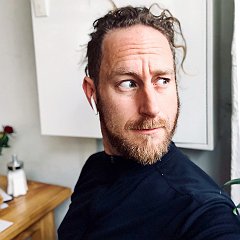Social Programming Considered as a Habitat for Groups
A new way to code up social apps emerges from studying how people use ordinary speech to set up social roles and obligations. Sentences like “whoever hosts the potluck has to contact the guests” and “once two people swipe right on each other, they can exchange messages” are made machine interpretable with a little extra punctuation. This approach–combined with a shared database of these social rules–leads to social software that works more like social conventions: it can be defied, expressively reinterpreted, and remodeled by the user. It also leads to much more flexible style of coordination, with greater support for individual leadership, individual discretion, and more open-ended collaborations. This can address a number of modern social ills.
I believe the current political moment demands a change in the way human systems (social networks, political systems, organizations) are designed; and making this change means having a clearer understanding of people (and of how they live and cooperate).
In tech, I was lucky to learn from people like Alan Kay, Terry Winograd, and Bill Verplank at Interval Research, from Casey Fenton at CouchSurfing (where I developed the metrics which guided the company), from Howie Shrobe and Marvin Minksy at MIT. And more recently through conversations with Bret Victor and Rob Ochshorn.
My direct philosophocal antecedents are Amartya Sen, Charles Taylor, David Velleman, and Ruth Chang.
Tue 10 AprDisplayed time zone: Amsterdam, Berlin, Bern, Rome, Stockholm, Vienna change
09:00 - 10:30 | |||
09:00 22mTalk | ACID for Programmers! PX/18 Friedrich Steimann Fernuniversität | ||
09:22 22mTalk | Attention Patterns for Code Animations: Using Eye Trackers to Evaluate Dynamic Code Presentation Techniques PX/18 Louis Spinelli University of Washington, USA, Maulishree Pandey University of Michigan, Steve Oney University of Michigan | ||
09:45 22mTalk | Reactive Programming Experience with REScala PX/18 Ragnar Mogk Technische Universität Darmstadt, Guido Salvaneschi TU Darmstadt, Mira Mezini TU Darmstadt | ||
10:07 22mTalk | Social Programming Considered as a Habitat for Groups PX/18 | ||
